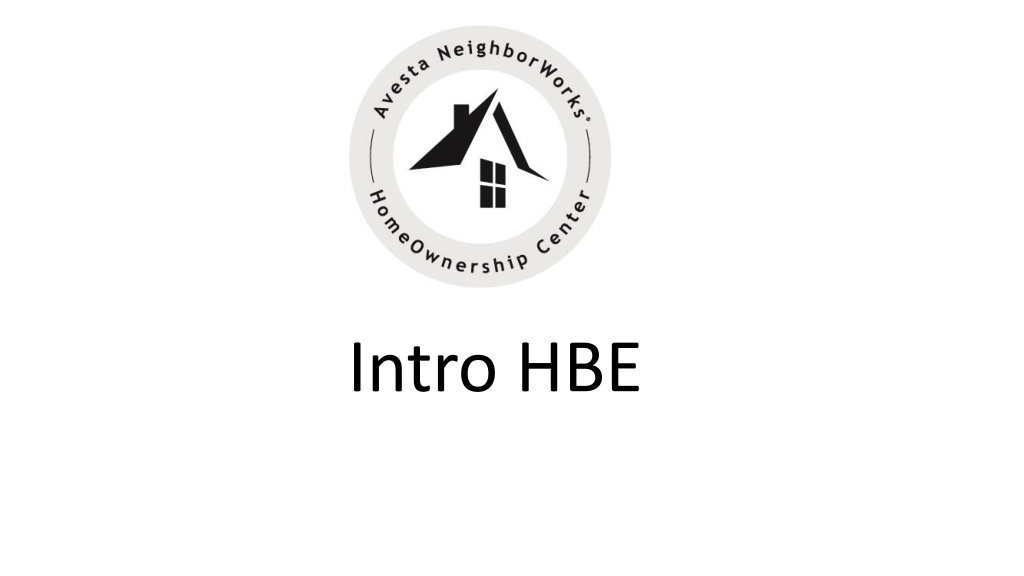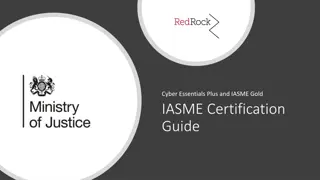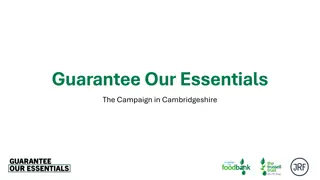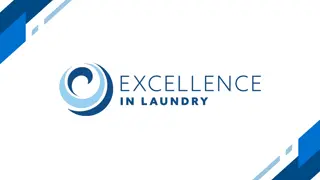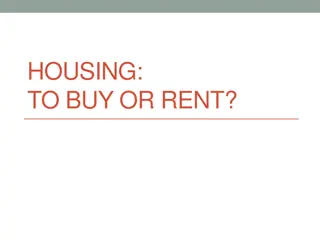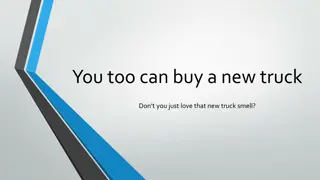Guide to Home Buying Essentials
This comprehensive guide covers essential topics for prospective homebuyers, including course objectives, financial considerations, advantages and disadvantages of homeownership, the home buying process, household finances, saving strategies, and budgeting basics. From understanding your rights to preparing for potential challenges, this guide provides valuable insights to help you navigate the home buying journey successfully.
Download Presentation

Please find below an Image/Link to download the presentation.
The content on the website is provided AS IS for your information and personal use only. It may not be sold, licensed, or shared on other websites without obtaining consent from the author.If you encounter any issues during the download, it is possible that the publisher has removed the file from their server.
You are allowed to download the files provided on this website for personal or commercial use, subject to the condition that they are used lawfully. All files are the property of their respective owners.
The content on the website is provided AS IS for your information and personal use only. It may not be sold, licensed, or shared on other websites without obtaining consent from the author.
E N D
Presentation Transcript
Course Objectives Course Objectives This class will help you to Know your rights Assess your credit readiness Determine payment affordability Choose the professionals you ll need Prepare for loan closing Learn about energy efficiency resources Prepare for any financial challenges 2
Where are you in the process? Where are you in the process? Are you ready to buy? Are you ready to buy? Do I have consistent and verifiable income? Have I maintained a positive credit history? Have I saved money for upfront expenses like down payment and closing costs? Do I plan on staying in the area? Can I afford increased ongoing housing expenses? Do I have resources to spend on maintenance? 3
Advantages Disadvantages Pride of ownership Maintenance and repairs Possible tax benefits Long-term commitment Build equity Value may depreciate Payment Stability Mortgage payments may be less than rent Pay all utilities, taxes, etc. 4
The Home Buying Process The Home Buying Process 1. Create budget and determine an affordable payment 2. Get pre-qualified and explore financing options 3. Choose a real estate agent 4. Shop for a home; make an offer; offer accepted 5. Order home inspection(s) 6. Apply for a mortgage loan 7. Buy homeowner s insurance 8. Review closing documents 9. Close on loan & purchase property 10.Move in & get to know your home Image result for home for sale graphic 5
Household Finances Budgeting to Save Budgeting to Save
Why Plan to Save? Why Plan to Save? To achieve financial goals, like purchasing a home To build or repair credit history To prepare for the unexpected 7
Budgeting Basics Identify a goal to work towards Savings, car, home, vacation Know how you spend your money Track with budgeting tools Create a spending plan Plug your spending leaks Find ways to stretch your dollar
How to Create a Budget How to Create a Budget A. Household take home ( net ) pay: $5,000 B. Subtract your obligated debts: C. Subtract your monthly expenses: - $2,800 D. What is left over: Income higher than expenses: Surplus Expenses higher than income: Deficit - $1,800 = $400 See Workbook pages 4-5 for worksheet 10
Budgeting Tools and Spending Plans Find a budgeting format that works for you Use an App like Mint, Wally, Acorns etc. Pencil and Paper Spreadsheets in excel Review and update regularly Use the knowledge and data from this exercise to plug leaks, lower expenses and save. 1 1
Identify Spending Leaks and Stretch your Dollar Spending leaks are seemingly small amounts of money, spent on nonessentials, that add up over time Coffee: $3.50 Lunch: $10.00 $13.50 per day $13.50 * 30 days = $405/ month $405 * 12months = $4860/ year Brainstorm ways to lower expenses Food: plan meals, pack lunches, buy in bulk etc. Transportation: Gasbuddy, carpool, ride a bike etc. 12
Starting a Savings Habit Start small: Establishing a habit is more important than the amount. Small amounts add up over time. Wants vs. Needs Pay yourself first: Treat savings like a bill Save loose change Save windfalls, such as tax refund, max out contributions to investments. 13
Why is Good Credit Important? Why is Good Credit Important? Easier to get approved for credit and qualify for the best interest rates Reviewed by creditors, employers, insurance companies, and landlords to determine whether you are responsible Check your credit report for accuracy. Validate any errors before applying for a mortgage. 15
Obtain Your FREE Credit Reports Obtain Your FREE Credit Reports Image result for transunion Annual Credit Report Request Service www.annualcreditreport.com Beware of imposter websites! 16
What is on a Credit Report? Revolving Accounts: charge, pay off, charge more etc. Installment Accounts: pay down the balance in regular, recurring payments. Unpaid Bills: Anything sent to collections Court Orders: judgements for things like child support and alimony. Credit Inquiries: anytime you apply for new credit. 17
Higher Credit Score = Lower Payments Higher Credit Score = Lower Payments Based on a $200,000 loan, 30-year mortgage 19
What if one of the applicants What if one of the applicants has a lower score? has a lower score? Applicant A 756 742 737 Applicant B 630 648 655 Which score is used by the lender? 20
Tips for Maintaining Good Credit Pay your bills on time! Set up auto pay, set a timer on your phone etc. Only open new accounts when you NEED them. Keep your debt levels low on revolving accounts 21
Rebuilding Credit History Rebuilding Credit History Takes time Pay on time and keep balances low Consider a secured credit card or credit-builder loan Beware of credit repair companies 22
Tips for Dealing with Collections Tips for Dealing with Collections Talk with your mortgage lender before paying off collection accounts Educate yourself for example, read the Maine Bureau of Consumer Protection s Downeaster Common Sense Guide to Debt Collection Information about your rights under the Fair Debt Collections Act are available from a Housing Counselor 23
Qualifying for a Mortgage Qualifying for a Mortgage - - The 4 C s The 4 C s Credit Character Capacity Income Capital Assets Collateral Property Value 25
What Does A Mortgage Payment Include? What Does A Mortgage Payment Include? Principle Interest Taxes Insurance PITI Mortgage Insurance Homeowners / Road Association + 26
Calculating Debt Calculating Debt- -to to- -Income Ratio Income Ratio Remember, debts are obligated repayments for borrowed money. Debts / Gross Monthly Income = Ratio 27
Down Payment Closing Costs Costs associated with obtaining mortgage Cash contribution you make toward the home purchase Estimated at 3 6% of the purchase price Between 0% - 20%, depending on the loan program Some loan programs may allow a buyer to 1) finance a portion of their closing costs or 2) be paid by the seller Some loan programs allow a buyer to receive a cash gift Talk with your lender 28
